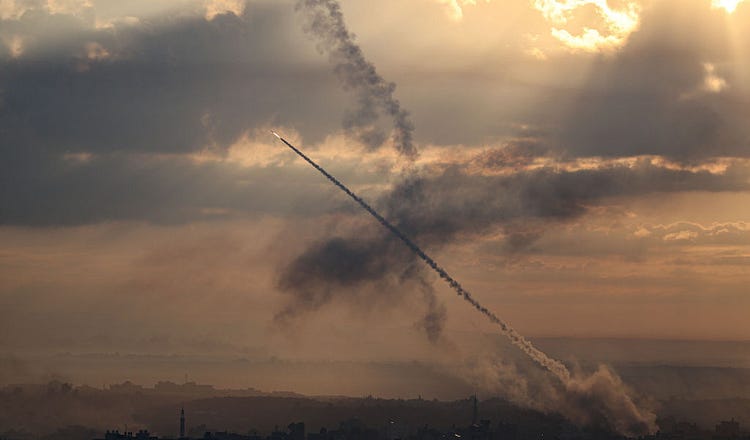Things Worth Remembering: A Time of War

Hamas fires a rocket from Gaza toward Israel on October 7, 2023. (Photo by Mustafa Hassona via Getty Images)
A passage from the Bible reminds us that the line between peace and horror is alarmingly thin.
222
Welcome to Things Worth Remembering, our Sunday column by Douglas Murray, where he reflects upon the greatest passages of literature. Today, after yesterday’s shocking attack on Israel, he has chosen lines from the Bible. Click below to hear him read from Ecclesiastes 3:1-8.
Continue Reading The Free Press
To support our journalism, and unlock all of our investigative stories and provocative commentary about the world as it actually is, subscribe below.
$8.33/month
Billed as $100 yearly
$10/month
Billed as $10 monthly
Already have an account?
Sign In


